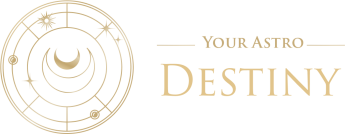Discovering Self: A Deep Dive into Archetypal Astrology and Free Will
Unraveling the mysteries of human existence has prompted comprehensive scientific and spiritual investigations over centuries. One tool utilized in this quest is astrology, more specifically, archetypal astrology. By examining planetary patterns and personifying them through cosmic archetypes, archetypal astrology provides intriguing insights about our spiritual, interpersonal, and behavioral attributes. It perches on the intersection between human psyche and cosmic influence. More importantly, it illuminates our perception of free will –– a philosophical topic that has stirred debate since forever.
Archetypes featured in astrology serve as distinct characters embodying a range of human experiences and universal themes. They are akin to playing roles in a narrative, directing individual experience and collective consciousness. Each presents commonalities shared by humanity and reflects various personality traits, emotions, and spiritual or psychological states. Significantly, exploring these archetypes births a deeper understanding of one’s psyche and the riddles of the human experience.
Astrologers generally associate the celestial bodies with specific archetypal energies. They perceive archetypal dynamics as intricate relationships among these celestial bodies, usually planets, through aspects like square, conjunction, opposition, or trine. For instance, Uranus symbolizes rebellion and sudden change, Saturn stands for limitation and authority, and Neptune for transcendence and illusions. Every person’s birth chart, a celestial snapshot at the moment of their birth, represents a unique constellation of these archetypal influences.
However, it’s essential to clarify that the intention here is not to reduce human psyche to a solo imprint of celestial influences. Archetypal astrology neither predicts concrete events nor categorizes anyone into predetermined molds. Rather, it emanates from the school of thought that understands the universe as a profound synchronicity between inner and outer reality. It explores the meaningful correlation between our internal experiences and the external cosmos.
Astrology acknowledges the semblance of twofold mystery in nature – objective and subjective. The objective follows Newtonian laws of cause and effect while the subjective unfolds from individual perception and consciousness. Archetypal astrology harmonizes these two metaphysical realms. It navigates the paradoxical relationship between celestial bodies and human experiences without assuming the former to be a direct cause of the latter.
Observation rather than deterministic prediction is key in this cosmic exploration. A person’s birth chart articulates potentials, but how these potentials manifest depends upon individual bio-psychosocial factors and, more importantly, one’s free will. Astrology, in this sense, is less about pre-ordained fate and more about evolving consciousness. It extends a linguistic structure to articulate the intricacies of human spirit and its alignment with cosmic energies.
The deliberation on free will is age-old and multifaceted. Within the realm of archetypal astrology, even though we are all born under specific celestial patterns that influence our lives, we retain freedom and responsibility for our decisions and actions. The way archetypes play out in our lives or their ‘archetypal complexes’ depends upon our subjective engagement with external realities. Our free will indeed helps in turning planetary potentials into manifested realities.
To summarize, archetypal astrology illuminates the association between human psyche and cosmic energies. It regards the universe as a concert, a dance between free will and cosmic influence, allowing us to surmise that archetypes don’t validate or invalidate free will. Instead, they offer an insightful language to understand human nature and its interplay with the cosmos. Harnessing this knowledge can enable individuals to navigate life more holistically, using cosmic influences as guides rather than determinants, thereby empowering them to exercise their free will more consciously.














